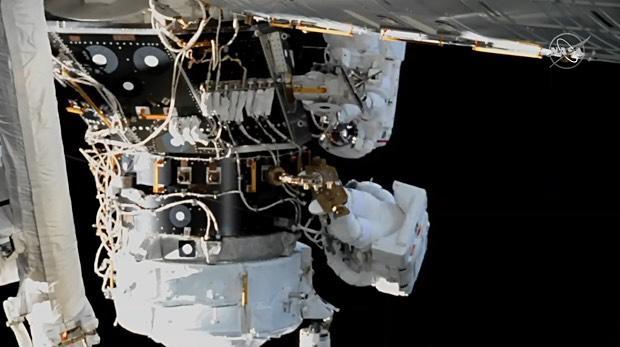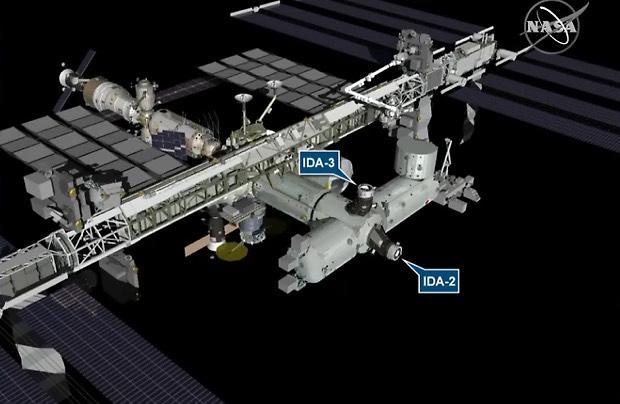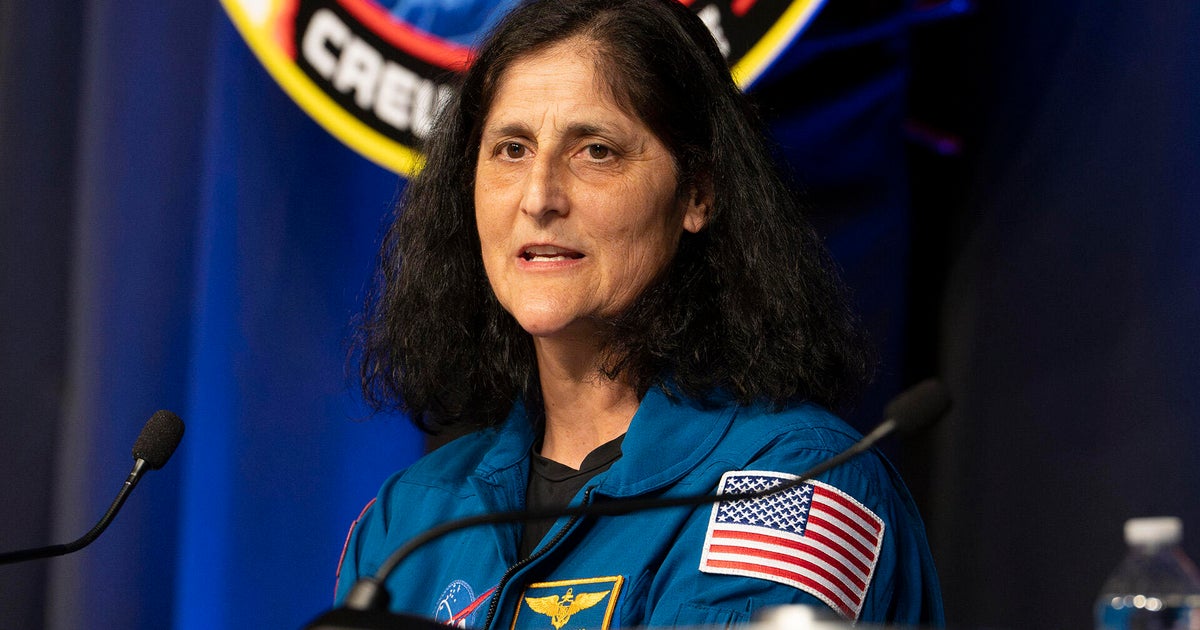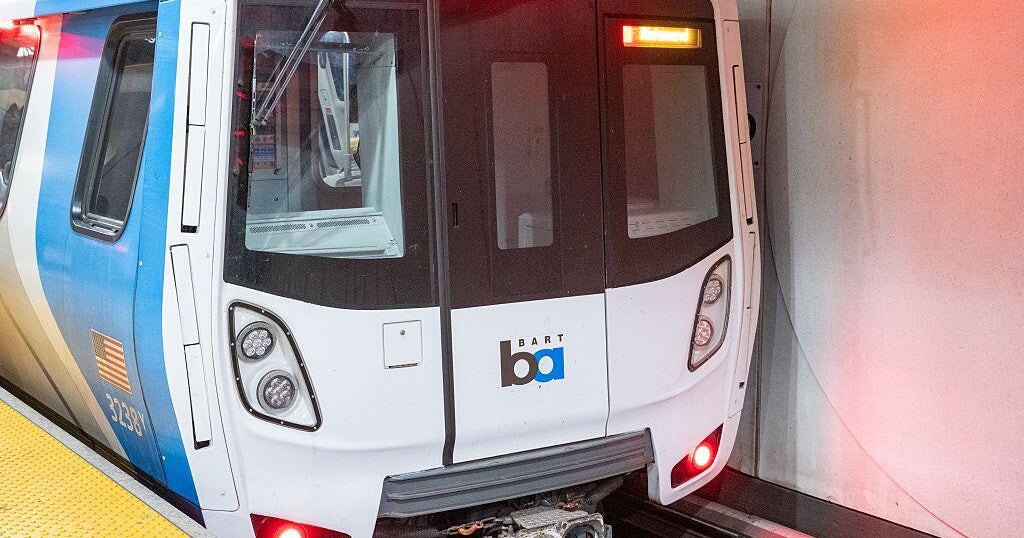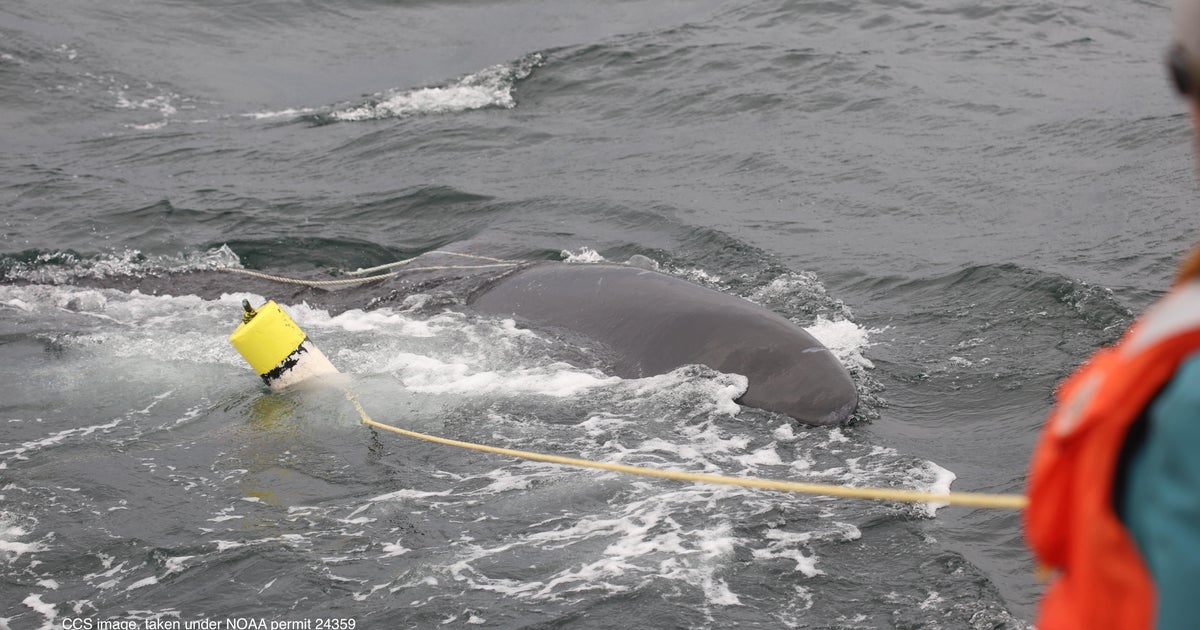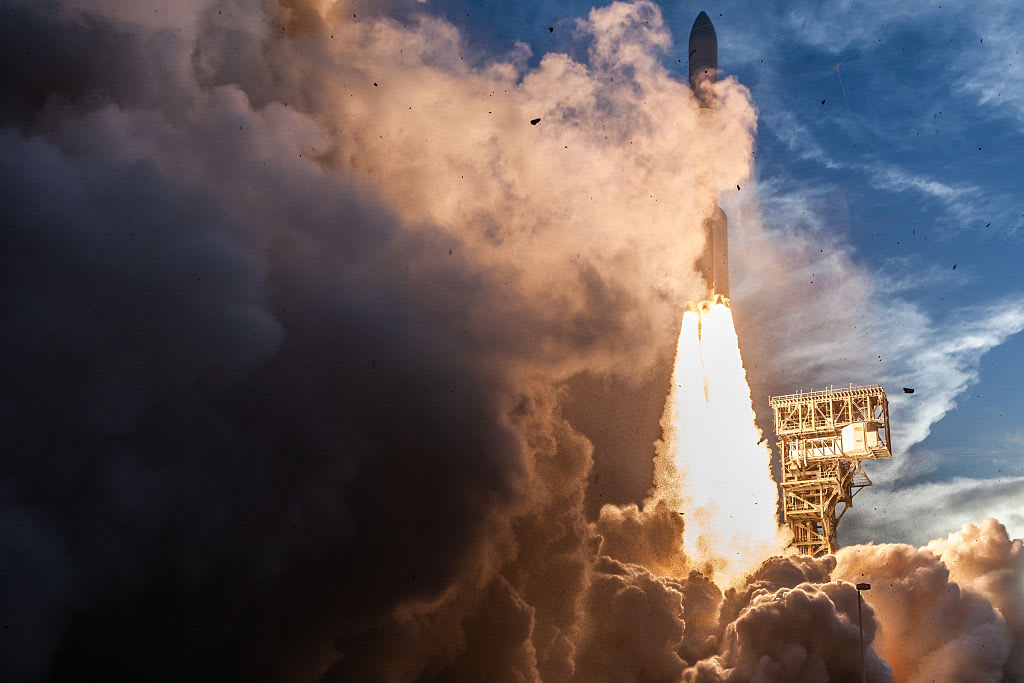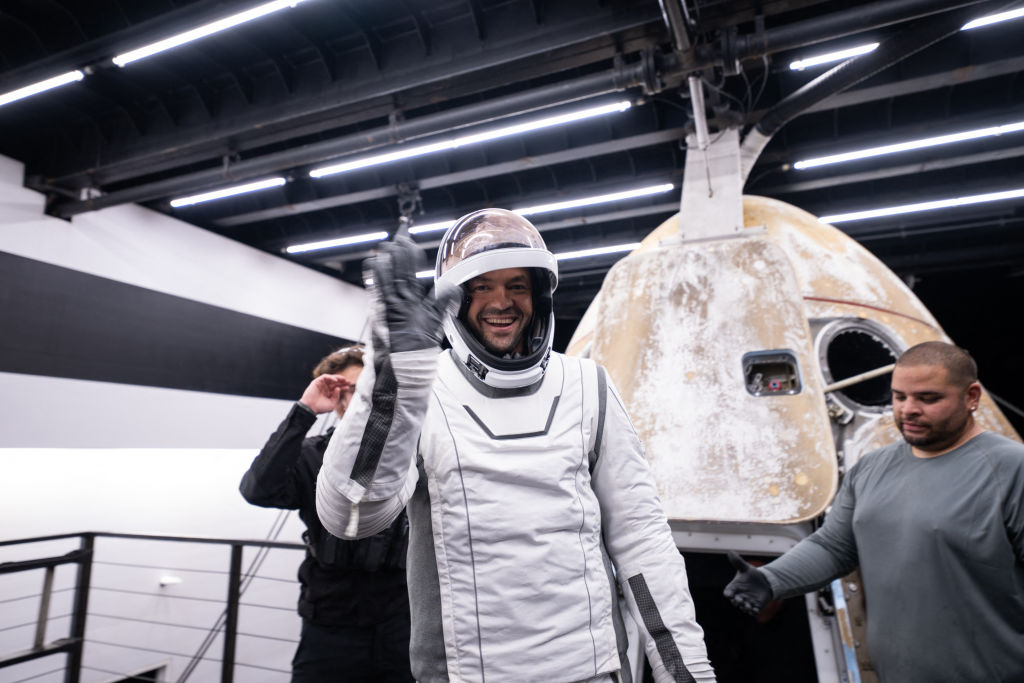Space station gets a new docking port in key upgrade for Boeing and SpaceX visits
Two NASA astronauts floated outside the International Space Station early Wednesday and helped attach a second docking port for commercial crew ships being built by Boeing and SpaceX. They also routed and connected cables to expand the lab's external wireless network and provide backup power to the station's robot arm.
Floating in the station's Quest airlock, astronauts Nick Hague and Drew Morgan switched their suits to battery power at 08:27 a.m. EDT to officially begin the 218th space station assembly and maintenance excursion since construction began in 1998.
The new international docking adapter, or IDA, was launched to the station last month aboard a SpaceX Dragon cargo ship. The lab's robot arm pulled the docking mechanism out of the Dragon's trunk section earlier this week and positioned it directly atop a tunnel-like pressurized mating adaptor extending from Harmony's upper port.
Working with electrical cables that were routed three years ago during two earlier spacewalks, Hague and Morgan connected the IDA to station power, allowing astronaut Christina Koch, working inside Harmony, to send commands driving internal hooks to close.
After flight controllers confirmed the $22.5 million IDA was firmly locked in place atop the PMA, the spacewalkers installed wiring to expand the lab's external wireless network and connected a jumper routing backup power to the robot arm.
The previously routed IDA cables "baked in the sun and had UV (ultraviolet radiation) and AO (atomic oxygen) exposure, so we expect them to be very difficult to manipulate and route," said Alex Kanelakos, the lead spacewalk officer at the Johnson Space Center in Houston. "This is mostly due to the fact that they'll be stiff and want to retain the coiled shape."
As it turned out, the spacewalkers had no major problems getting the cables connected.
"And Nick, while you're in transit, I have to tell you three lovely ladies have come in, one of which happens to be your mother, and has made delicious food for everybody," astronaut Mike Barratt radioed at one point from mission control.
"I heard she was busy in the kitchen yesterday," Hague replied. "I hope everyone enjoys it. I'm jealous."
"Well, we have a certain jealousy of what you guys are doing as well. So I'd say it's an even trade."
Hague and Morgan finished their tasks on time and returned to the airlock, ending the 6-hour 32-minute spacewalk at 1:59 p.m. It was the fifth station outing so far this year, the third for Hague and the first for Morgan. Total space station EVA time now stands at 1,367 hours and 26 minutes, or 57 days.
The U.S. segment of the space station features four ports where visiting vehicles can either dock on their own or be berthed by the lab's robot arm. The Russian segment also features four ports that are used by unpiloted Progress cargo craft and Soyuz crew ferry ships.
Space shuttles docked at the front end of the Harmony module, and that port already has been equipped with a Boeing-built international docking adapter that can accommodate either SpaceX's Crew Dragon ferry ship or Boeing's CST-100 Starliner.
Two Earth-facing ports, one on Harmony and the other on the central Unity module, are used to berth visiting cargo ships built by SpaceX, Northrop Grumman and JAXA, the Japanese space agency. The cargo ships are pulled in for berthing by the station's robot arm and those ports do not require the capture mechanisms in an IDA.
NASA launched the first IDA aboard a SpaceX Dragon cargo ship in June 2015, but its Falcon 9 rocket suffered a catastrophic failure on the way to orbit, destroying the Dragon and its payload. IDA-2 was successfully launched later and installed on Harmony's forward port. IDA-3, the subject of Wednesday's spacewalk, is a replacement for the one that was lost in 2015.
"It really is creating the second docking port for not only commercial crew vehicles, but one of our cargo vehicles will be docking there in the not too distant future," said Kirk Shireman, space station program manager at the Johnson Space Center. "It's really important we have this additional capability."
Boeing hopes to launch its Starliner capsule on an unpiloted test flight in the October timeframe, followed by a test flight with three crew members aboard before the end of the year. SpaceX launched a Crew Dragon spacecraft on a successful unpiloted flight to the station in March, but the company is still recovering from an April test failure and it's not known when its first crewed mission might get off the ground.
But the initial flights will dock at the station's forward port. Later, the crew ships and SpaceX's second-generation Dragon cargo craft will begin using the upper port as well. Shireman said having two ports with active docking mechanisms will allow NASA to make sure U.S. astronauts are always on board the space station.
"It really allows us to make sure we have people on board all the time," he said. "That's number one. Number two is, at least one of our cargo vehicles will come and dock (at an IDA). So you have to have an open port.
"And then finally, NASA's got this big initiative to do all kinds of commercial activities. One of them is private astronaut missions. So we expect that other private vehicles will come up and bring visitors to the ISS on that docking port. So we really need to have this capability."
